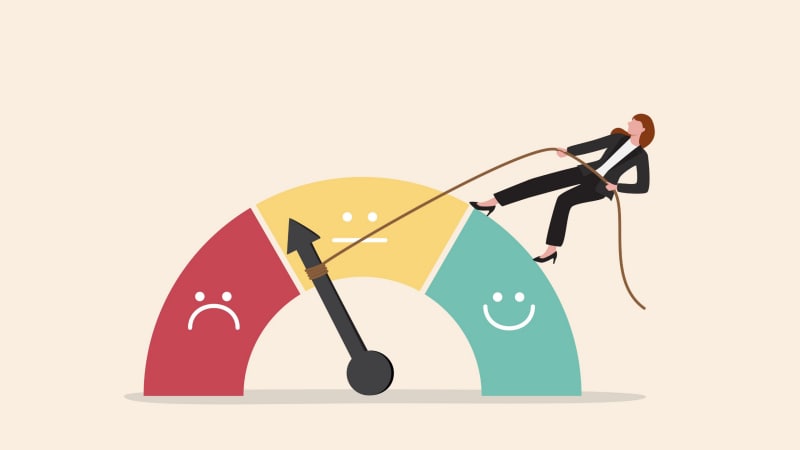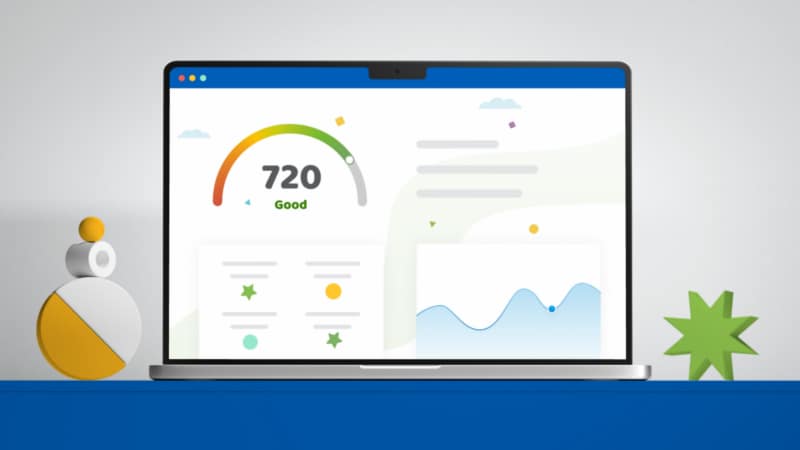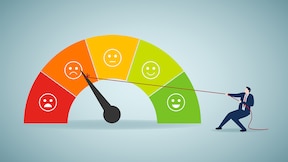Credit scores
Whether establishing credit for the first time or trying to improve your credit score, consider these strategies and tips.
Learning about credit scores
What is "good" credit? Why is it important to have good credit? And what is credit utilization ratio?
credit scores609 credit score: A guide to credit scores

A 609 is considered fair or near prime depending on the scoring model. Learn about your approval odds and ways to help your score.
credit scoresDo utility payments affect credit scores?

Utility payments usually do not affect your credit score unless unpaid bills go to collections. However, some services now let you add on-time utility payments to your credit report, which may help improve your score.
credit scores582 credit score: A guide to credit scores

A 582 credit score is considered sub-prime or fair depending on the scoring model. Learn about your chances of approval for credit products and how you may improve your score.
Understanding the importance of your credit history
credit scores
Do utility payments affect credit scores? Utility payments usually do not affect your credit score unless unpaid bills go to collections. However, some services now let you add on-time utility payments to your credit report, which may help improve your score.
Utility payments usually do not affect your credit score unless unpaid bills go to collections. However, some services now let you add on-time utility payments to your credit report, which may help improve your score.credit scores
300 to 600: Poor credit score and what it means According to VantageScore, a “bad” or “poor” credit score is anything below 600. Find out more about bad credit scores and how to build up credit.
According to VantageScore, a “bad” or “poor” credit score is anything below 600. Find out more about bad credit scores and how to build up credit.credit scores
Can you get a job with bad credit? Will your low credit score affect your chance of being employed? Learn what an employer looks at when the do background checks.
Will your low credit score affect your chance of being employed? Learn what an employer looks at when the do background checks.credit scores
What is Chase Credit Journey®? Chase Credit Journey is a free tool that helps monitor your credit score. Uncover its unique features and how it can help you improve your credit.
Chase Credit Journey is a free tool that helps monitor your credit score. Uncover its unique features and how it can help you improve your credit.credit scores
500 credit score: A guide to credit scores A 500 is considered poor or subprime depending on the scoring model. Learn about your chances of approval and ways to help improve your score.
A 500 is considered poor or subprime depending on the scoring model. Learn about your chances of approval and ways to help improve your score.credit scores
520 credit score: A guide to credit scores An 520 credit score is considered poor or subprime depending on the scoring model. Discover your approval odds and steps to help improve your score.
An 520 credit score is considered poor or subprime depending on the scoring model. Discover your approval odds and steps to help improve your score.credit scores
570 credit score: A guide to credit scores A 570 credit score is considered fair or subprime, depending on the scoring model. Learn about your approval odds and ways to help improve your score.
A 570 credit score is considered fair or subprime, depending on the scoring model. Learn about your approval odds and ways to help improve your score.credit scores
580 credit score: A guide to credit scores A 580 is considered fair or subprime depending on the scoring model. Learn about your approval odds and ways of increasing your score.
A 580 is considered fair or subprime depending on the scoring model. Learn about your approval odds and ways of increasing your score.
Explore financial education